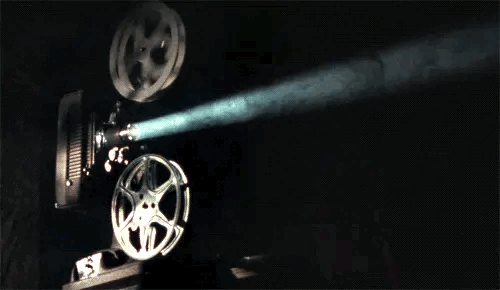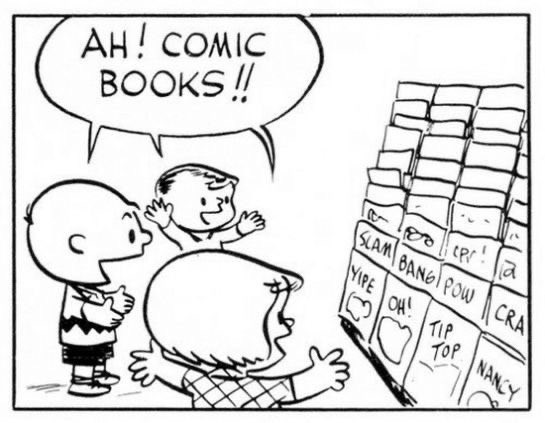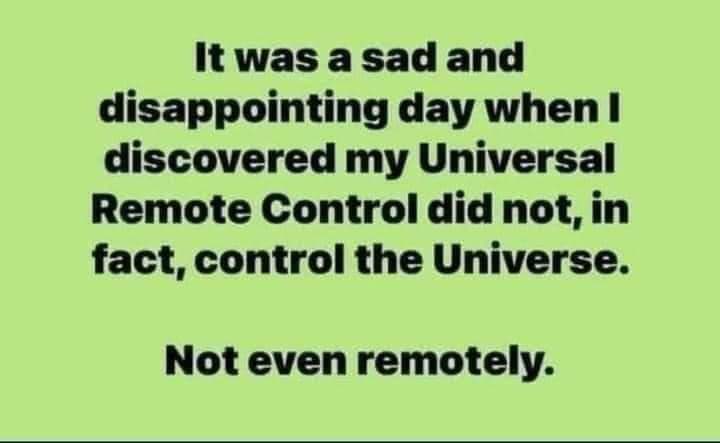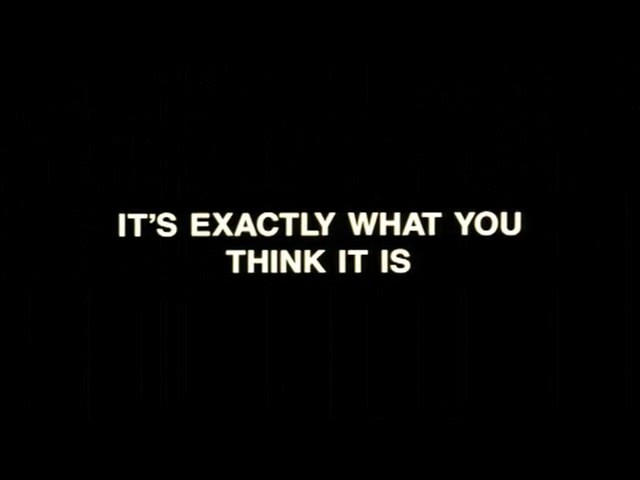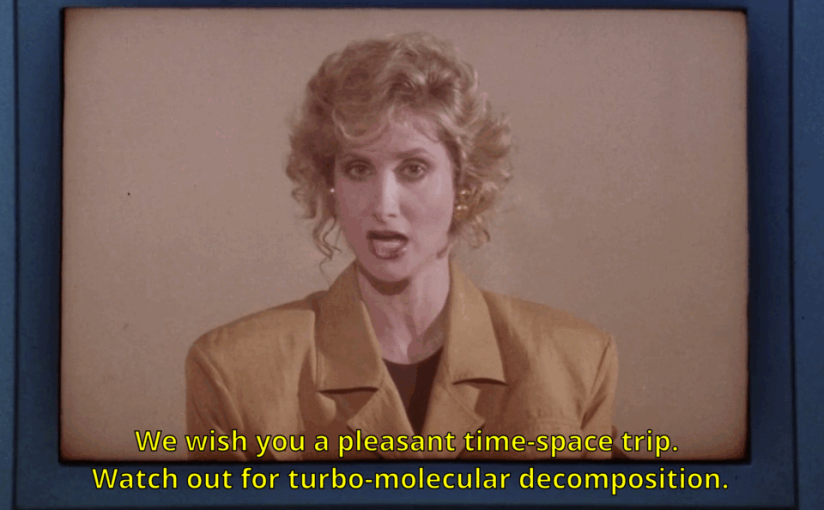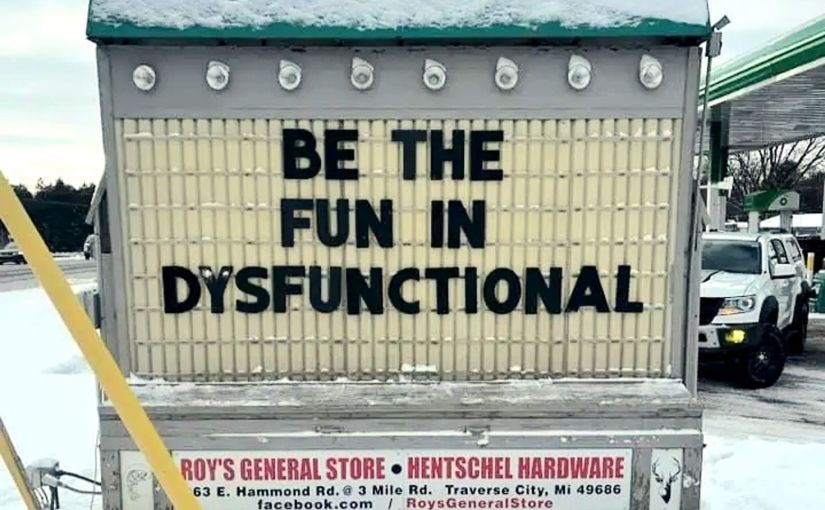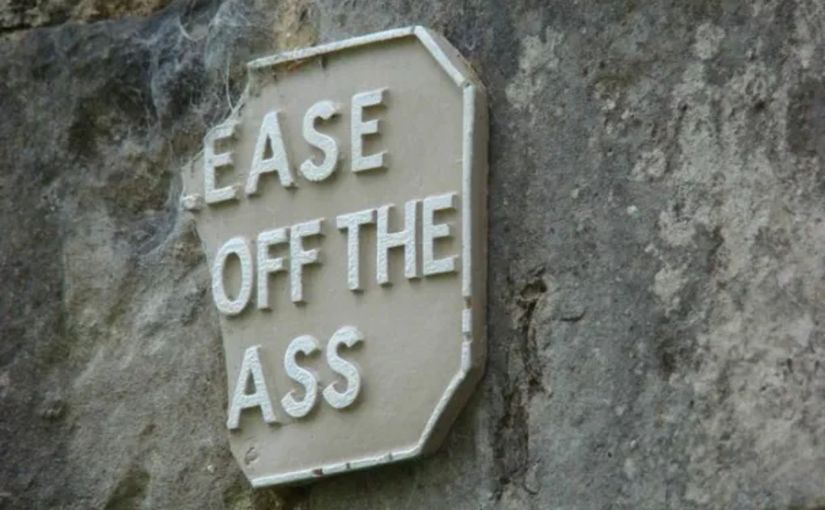A guest post this week! The fact it appears in a week when I have very little in the bank for a Swipe is entirely coincidental.
I am honored and delighted to welcome my pal Ryan Morris to the ranks of X&HTeammates. He has gracefully allowed me to host his piece, first published in 2019 by Jump Cut Archive, on… well, look at the title and you should get the idea. With Furiosa rumbling over the horizon this month, now is an excellent time to dig into the first part of the story (chronologically speaking, the second part but hey, you know, movies).
Aaaanyway. This is a deep dive but worth the oxygen debt. Settle back and let Ryan lead us down the path to freedom.
Geographically, Mad Max: Fury Road ends exactly where it begins. After a short prologue detailing the descent of the world and of humanity, we find ourselves deep within the Citadel, held and run by the tyrannical Immortan Joe. We watch as Max is brought there, used as a blood bank for the War Boy Nux, strapped to the front of a fired-up car and sent after Furiosa to bring back Joe’s five Wives. We follow their chaotic journey to the Green Place, grieve at their loss of hope, then witness their last-ditch effort to reclaim the once traumatic environment of the Citadel and re-identify it as a home of liberation. It’s a frantic, brutal, cyclical journey.
The Citadel opens George Miller’s film as a place of violence and hopelessness, an environment that leaves physical wounds upon the body – Max is brought there and immediately scarred with markings that dehumanizingly list his blood type, while Furiosa is introduced to us through a shot of the symbol Joe has branded on the back of her neck before we’re given the reveal of her mechanical left arm, an enigma to the violence of her past. Both elements to these characters will be important later, as we look at the ways Fury Road finds freedom for its characters, and binds it to a specific idea of liberation depending on the character you examine: for Max, it is liberation of the self; for Furiosa, liberation of the past; for Nux, liberation of the mind; for the Wives, liberation of the body. Miller’s film may open and close in the same physical environment but the same cannot be said for the people who occupy his story.
Before we begin, it’s worth looking at the other central themes that occupy Fury Road, as many of them will resurface once we take a deeper dive into the individual characters of the film and the way Miller takes them on the path to freedom via liberation. Most notably, Fury Road concerns itself with survival, specifically in a harsh, post-apocalyptic world. More than simply surviving the events of the film, though, Miller’s script imbeds the concept of survival deep into his characters – survival is all Max cares about, Furiosa concerns herself with the survival of others and Nux has little interest in survival in order to appease the leader he worships. Redemption and revenge also arise throughout the film, as well as the concept of home, again in a variety of ways – the Wives are looking for a new safe home, Furiosa is trying to return to her old home, and Max’s has been long destroyed.
Max Rockatansky opens the film with a narration, through which he refers to his world as “fire and blood” and deems himself “reduced to a single instinct”, survival. His narration grants us flashes into his past, scattered memories of family and friends he was unable to protect or save. He is, unmistakably, haunted by them. The shame of Max’ past overwhelms him and his sense of self, the figure we see at the beginning of the film is without home and without soul. Existing in the wasteland is all Max longs for and all he achieves, the most fundamental element of humanity – survival – is also the most rudimentary. We all need to survive, but we all choose to do so much more. Not Max.



It’s important to remember that, at this stage in the film, not even Max’s own blood belongs to him. Further into the film, when Max meets Furiosa and reluctantly joins her mission to free Joe’s Wives, he is queried as to his identity and his story, but he refuses to answer. Furiosa asks for his name during a pivotal scene and is met with little more than a blank stare and a snappy shake of the head. I don’t deserve a name, we can read through Tom Hardy’s brilliantly expressive eyes. A man haunted by those he failed to save does not warrant saving. To have a name is to have belonging, our first names identify us while our surnames come coupled with our history. Initially, Max wants neither.
Across Fury Road, Max comes to see that this world, though still unavoidably bleak and decayed, has opportunity for him. Those he failed to protect in the past will always haunt him, but when faced with the chance to correct the wrongs of his former self – the self he no longer identifies with – he begins to understand how he can avoid making the same mistakes. We’re introduced to Max in the Citadel as a blood bank for the Immortan’s army, but by the film’s resolution we find him using that branding to save the life of the woman who saved his sense of self – in doing so, he reclaims the identity he’s been hiding from others and, most notably, himself. Our last sighting of Max is of him disappearing into the crowds beneath the Citadel, refusing the spotlight and walking away from acknowledgement, but his nod of the head towards Furiosa – surviving because Max’ blood runs through her veins – is of stark contrast to the head shake he dismisses her with earlier. Liberated from the nameless persona Max bound to himself, we get the sense that the idea of family (a key component in our understanding of the self) is perhaps not all that lost to him anymore.
Similarly to Max, Furiosa’s growth across the film comes through our understanding of her past. While Max is granted the opportunity to talk us through his immediate history at the film’s opening, Furiosa has no such luxury, meaning we must piece her narrative thus far together ourselves. We know from Miller’s rich sense of world-building that women aren’t exactly heralded as worthy in this new and broken world, so we can perhaps ascertain that in order to achieve her high-ranking status Furiosa had to embody the traits of men and perhaps even look down on the other, “lesser” women of the Citadel. Why is the freedom of Joe’s Wives so important to her? In the Citadel, Furiosa has security, she has power and she has trust – that mechanical arm didn’t make itself. Abandoning this safety to grant the freedom of others in such a harsh world is an act of overwhelming selflessness, one we arguably don’t understand until later in the film when Furiosa reunites with the Vuvalini.
Redemption is the sole word on Furiosa’s lips when Max asks her what she wants, and it’s the sole word that convinces her to have faith in Max’s final plan to return to the Citadel. But what exactly does Furiosa need to redeem? We find out through her time with the Vuvalini that she was stolen from her home as a child, raised in the Citadel without any family and forced into the life she presently leads. There’s a sense of shame in Charlize Theron’s voice when Furiosa discusses her past without specificity, an unspoken side to her character that craves redemption without revealing what led her to require such an atonement. Has she brought misfortune or pain to others? To other women? Or was the mere act of passivity too much for her in the end, to allow Joe’s ruling to bring so much suffering for others? It’s hard to know for sure, but Furiosa is hell bent on fixing it.
Through saving Joe’s wives, and reuniting with and rehoming the surviving members of the Vuvalini, Furiosa finds her past actions (or inactions) redeemed, her bravery and ferocity leading to her physically ripping the face from Immortan Joe’s skull, ridding the identity of her enemy from the people she intends to rescue. Furiosa’s liberation almost comes at the expense of her own life too, with Max’s blood restoring her vitality in the film’s final moments. Where this act can be seen as a reclamation of identity for Max – the role he was assigned becomes the role he chooses – for Furiosa it feels more akin to a poetic sense of justice. When Furiosa first arrived at the Citadel, following her violent kidnapping, she lost the one person with whom she shared blood – her mother, kidnapped alongside her – three days later, leaving her alone and vulnerable to the world and the men who ruled it. In returning to the Citadel at the end of Fury Road with Max’s blood coursing through her body, her sense of family is restored and her past is relived in a more hopeful way, freeing her from its violence.
Continuing on from Max and Furiosa, Nux’s arc across Fury Road also begins prior to the start of the film. We meet Nux ill and drained, Max’s blood being pumped into him to keep him alive. He’s a War Boy, a slave to a religion. His purpose is to please his master, Immortan Joe, and die a glorious and historic death in order to be granted access into an afterlife, into Valhalla. Referred to as a half-life, Nux believes his sole purpose is to die so he can reach the next stage of his existence. He’s riddled with tumours and entirely unhinged, both his body and especially his mind are essentially poisoned. Giving chase with Max hooked to the front of his car, determined to bring back Joe’s Wives and win the acknowledgement of his God, Nux takes a leap of faith.
And he misses. He falls. In front of his ruler, he fails. Overcome with shame and fear – everything in his mind now tells him he’s destined to be cast aside, never awaited in Valhalla, living a worthless life – he cowers in the rig and is found by Capable, one of Joe’s Wives. Through his failure, he finds companionship. Through companionship he finds love, and through love he finds acceptance. Except, it isn’t a self-validating kind of acceptance, it doesn’t liberate his past or his identity in the ways the film uses Max and Furiosa. Rather, Nux’s freedom comes with accepting that his world and his beliefs are falsified, fabricated by his own ruler in order to use him as a blind soldier willing to die for a prize he’ll never see. His mind is a lie.
Coupled with his own rediscovered sense of purpose, Nux slowly joins the side that fights for freedom. In his final moments, Nux sacrifices himself by crashing the rig into a rock wall, allowing his newfound allies to survive while he closes off the pathway to the army chasing them. He dies on the battlefield, witnessed and loved by the one most important to him, in a historic death that changes the world. Nux achieves all he sets out to do but, with his mind now liberated from the toxins fed to him by a false God, he’s able to fight for the right people. Maybe an afterlife greeted him after the rig crashed through that violent terrain, or maybe his world went black and his time in it was up – the beauty in Nux’s ending is that it no longer matters. Whichever the outcome, Nux dies free, but most importantly he dies a hero – and that’s all he ever wanted.
Finally, we have Joe’s five wives: The Splendid Angharad, Capable, Toast the Knowing, Cheedo the Fragile and The Dag. Used and abused by Joe in the Citadel, exploited as little more than prized possessions and breeding stock, it would be very easy for the Wives to fall flat as characters, to feel like little more than cargo that Furiosa is escorting. But Miller binds a very simple yet powerful statement to the five women – “We are not things” – that prevents this from happening. We gather that, as breeding slaves, the Wives have little to no power in the Citadel, be it physically, emotionally or intellectually. Their bodies belong to Joe, and their minds don’t matter, as long as they’re pure and beautiful and as long as they’re his.
Across Fury Road, we witness Joe’s Wives liberate themselves from that very identity through the reclamation of their bodies. At their first pit stop, they use bolt cutters to forcibly remove the violent-looking chastity belts Joe forced them to wear and shower in water pumped from the rig, cleansing themselves of the environment they formerly belonged to. We know from an earlier scene that Joe uses water to manipulate the downtrodden citizens of his Citadel, pumping it up from the ground and claiming ownership of it. The act of using this water, that Joe himself would have pumped up, to rid the remnants of his Citadel from their skin is one of many ways the Wives free themselves – and, in that, their bodies – from Joe’s control. Later, when Joe has a clear shot at victory, Angharad hangs from the rig’s door and uses her pregnant body as a shield to prevent Joe from firing his gun. In both circumstances, the Wives use their bodies against Joe – at first symbolically, and then physically.
Returning to the Citadel feels like the very last thing the Wives would want to accomplish in this film, and yet it still rings entirely like a victory when they do. When we meet them, the Wives are the property of men in a hostile environment, but when Fury Road circles back to this location for its final sequence the circumstances could not be any more changed. Capable, Toast the Knowing, The Dag and Cheedo the Fragile return to the Citadel in the company of women, rising up on a platform and liberated from the male possession. That the film ends with them being physically lifted up to the highs of the Citadel by the sick War Pups is no coincidence, as the four women have altered their state from property to power. Their return is heralded, and as they look out from the platform rising to where we first met their former owner, their bodies now stand independent and free.
And so, we end back at the Citadel, the very place in which we began. There is an unmistakeable sense of irony to the cyclical way Mad Max: Fury Road ends, in which all the characters who fight to leave the Citadel end up returning to it and all the characters who want to return there end up dead in their attempts to do so. Here, we’ve looked at the ways Miller allows his characters’ motives and purposes to double back on themselves, to return to an earlier state but with a shift in perspective: Max reclaims his former identity but with reinvigorated hope, while Nux returns to the idea of sacrifice but for the opposing faction. Irony there may be, but it’s an irony that comes coupled with a sense of liberation for all involved.
Fury Road’s climactic return to its opening locale visually represents the nature of its own themes, a perfect circle that begins in one shade but finishes as another. All of the core characters in Miller’s film are released from their burdens, if not entirely then we at least get a sense that their new journeys are now in a place from which they can begin. Freed from the chains holding them back – be it physical (the Wives), mental (Furiosa, Nux) or maybe even both (Max) – Fury Road finds a changed, liberated perspective for its characters. The world may be poisoned and the future might look grim, but there’s no situation you can’t free yourself from if you have the power to do it, Miller argues. Self-discovery, redemption, understanding and empowerment await. Liberation awaits.




